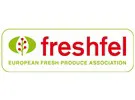Freshfel Europe circulated an open communication addressed to the Members of the European Parliament (MEPs) in the Agriculture and the International Trade Committees, urging them not to forget the strong and ongoing impact of the now 7-year Russian embargo on the fresh fruits and vegetables sector. In the letter MEPs were asked to continue supporting fruit and vegetables operators in their constant efforts to diversify exports to other markets and to enhance fruit and vegetable consumption on the EU market to offset the loss of the Russian market, formerly the main outlet for EU fresh fruit and vegetables exports.
The 2014 Russian embargo deeply impacted European fruit and vegetable growers and exporters. The Russian sanctions are worth approximately €7.5 billion for all countries affected, out of which €5 billion impacted EU agriculture, with €2.5 billion impacting the fruit and vegetable sector. “In order to counter the storm, the European Commission swiftly responded with exceptional market measures to support the sector, which lasted until the season 2017/2018”, reflected Philippe Binard, Freshfel Europe General Delegate.
“However, the total amount of compensation for 2014-2018 was €510 million covering 1.7 Mio T out of a total lost market of 10 Mio T worth close to €8 billion. In addition, repositioning fruit, such as apples and pears, is not an easy task considering the long-term investment in the orchards and the different requirements in various markets,” Mr. Binard pointed out.
The sector’s efforts to promote new markets to diversify exports have also proven difficult in light of multiple barriers to trade, notably sanitary and phytosanitary issues. Regarding internal consumption, unfortunately the fresh fruit and vegetable consumption by European citizens remains low at 363g per capita per day, below the WHO recommended 400g and despite the sector’s ongoing efforts to promote consumption.
With the re-set of EU-Russia relations becoming increasingly uncertain, “the sector is urging the European Parliament to support the fruit and vegetable sector in promoting EU consumption in the context of the Farm to Fork Strategy, the Beating Cancer Plan and the EU Strategy on the Rights of the Child, all of which highlight the importance of healthy, plant-based diets rich in fresh fruits and vegetables,” noted Natalia Santos, Freshfel Europe Trade & Market Access Director.
Moreover, the sector needs the Parliament to make the ratification of new free trade agreements conditional to the existence of a strong chapter on sanitary and phytosanitary issues with sufficient binding guarantees from the partner country to ensure EU fruit and vegetable access these markets in the same way that access is granted to the EU market for their exports.
“We are urging MEPs to prioritise the ratification of the modernized EU-Mexico Trade Agreement, in which the EU negotiators successfully incorporated crucial SPS provisions,” added Ms. Santos.
 For more information:
For more information:
Freshfel Europe
Tel: +32 (0)2 777 15 80
Email: info@freshfel.org
www.freshfel.org
